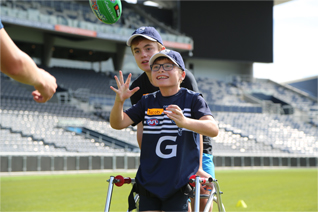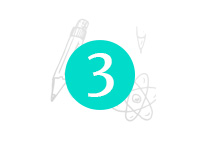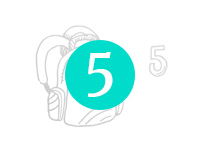
Welcome to
AllPlay Learn


The program is based on the AllPlay framework, which delivers accessible online evidence-based tools and resources to assist and support children and young people with developmental challenges and disabilities and their families to successfully participate in mainstream activities.
The AllPlay Learn program translates inclusive practices from educational policy and evidence-based research to school classrooms and early years settings to ensure meaningful outcomes for children and young people with developmental challenges and disabilities. The focus of the resource development is on common issues faced by children and young people across a range of developmental challenges and disabilities, with a particular emphasis on social and behavioural challenges.

AllPlay uses a strengths-based approach and makes it easy by providing simple strategies which come from research evidence. AllPlay Learn resources include professional learning courses about disability and inclusion for educators and teachers in early childhood, primary and secondary school settings. The comprehensive online resource provides step by step guides for educators and teachers on how to be inclusive and strategies and tips to make adjustments for children and students with disabilities.
AllPlay Learn strategies integrate the best research evidence and have been designed to be simple to use without requiring extensive educator training or additional resources.
Parents also have access to simple guides and strategies to help support their child’s educational experience. A range of resources are provided to children and students to help them understand and navigate different situations in early childhood education and care settings or school.

How the AllPlay Learn strategies were developed
The AllPlay Learn team conducted a series of systematic reviews of the empirical literature. The team identified from the literature the strengths children and young people with different disabilities and developmental challenges may have, and the teaching or education-based strategies that have been evaluated and found to be effective. To be included, a strategy needed to have been evaluated by research conducted within a school, classroom or early childhood setting. We searched through over 15,000 journal articles about strengths and strategies for children and young people with ADHD, over 28,000 for Anxiety, over 20,000 for ASD, over 14,000 for Blind and Low Vision, over 8,000 for Cerebral Palsy, over 13,000 for Communication Disorders, over 12,000 for Deaf/deaf and Hard of Hearing, over 14,000 for Intellectual Disability, over 23,000 for Oppositional Defiant Disorder, over 3,000 for Physical Disabilities, and over 16,000 for Specific Learning Disabilities. In all, over 177,000 articles were screened to ensure a comprehensive range of evidence-based strategies were identified.
We also provide other strategies that can be considered which may have been evaluated in other contexts (for example, the clinical or home setting), have been identified as a relevant factor (for example, a study that identified a specific teaching style as leading to higher levels of anxiety), or be considered best practice by experts in the field. Strategies that required training or access to specific programs or resources have not been included. This means the recommended strategies are simple to implement within a busy environment by teachers or educators.
Strategies were organised by early childhood, primary school and secondary school settings. We acknowledge that some strategies may not be relevant to all developmental stages within a setting. For example, some strategies may be relevant in early primary but not late primary (or vice versa). Consideration of a child’s developmental stage and abilities when applying strategies is advised.

AllPlay Principles

Evidence based.
AllPlay resources are backed by evidence from research. Where evidence is lacking the gap is being filled by AllPlay research in progress. Where there are still existing gaps, multidisciplinary clinical knowledge is utilised while research catches up. We readily acknowledge where there are gaps in the evidence base. By tying our work back to the evidence base we minimise the chance of doing harm.
Meet the needs of all children.
AllPlay strives to reach the one in five children who have a disability or developmental challenge or vulnerability. We focus on the unique strengths of each child and creating resilience. We include all children and create programs that are culturally sensitive and inclusive of Aboriginal and Torres Strait Islander children.
Focus on real inclusion.
The AllPlay model is focused on real inclusion rather than tokenism. When there are specialist programs in existence there can be a tendency to segregate children with disabilities into these groups rather than make mainstream programs inclusive. We want to provide the resources and social change mechanism to make mainstream inclusion a reality. At the same time we respect the individual choices and preferences of children and their families.
Change the world and not the child.
When not everyone can be included it’s usually because of the structures and the systems in place, and a lack of understanding, not because of the abilities of children. We are tackling these structures and systems and are leading a social movement of inclusion to make the world fit for all children, rather than changing the child.
Partner to make change happen.
We bring research and clinical knowledge together with peak bodies and government agencies for sport, dance and education, along with grass roots community coaches, clubs, teachers, schools and organisations and connect with children and parents to build AllPlay programs. Only through including the right people can we change the structures and systems and be impactful.
Our Language
We acknowledge that the language we use shapes how we view and think about the world. The way we talk about people can influence attitudes and impact on people’s lives. It is important to not speak about others as problems or challenges or as the object of pity or charity.
Some prefer a person-first approach and refer to ‘people with a disability’ rather than ‘a disabled person’. This puts the focus on the person rather than his or her impairment. However, others may prefer identity first language for disability, such as ‘an autistic person’ rather than ‘a person with autism’. Identity first language can help individuals to “claim” their disabilities with pride. We do not wish to offend any person or appear insensitive so we use both approaches on our website. We also use language that focuses on accessibility rather than disability.
We acknowledge that families come in many different forms. Some children live with biological or adopted parents, and some children live with caregivers or other family members. We use the language ‘caregiver’, ‘parent’ or ‘family’ interchangeably on our website. We do not wish to exclude any person who is responsible for a child’s primary care, and so we intend to refer to all primary caregivers.
There are many different ways to describe young people. Some prefer that language such as ‘kid’ is avoided, while in other contexts (such as a parent-child relationship) adolescent may not be a good fit. To better cater for different audiences, we use ‘child’ in the early childhood setting, ‘child’ or ‘student’ for the primary school setting, and ‘student’, ‘teen’, ‘teenager’ or ‘young person’ for the secondary school setting. For parents and students, we use ‘child’, ‘kid’ or ‘teenager’.
Our website uses a strengths-based approach to disability. There are times on our website where it is necessary to identify and describe challenging behaviours. We use ‘challenging behaviour’ and ‘disruptive behaviour’ to identify types of behaviour that may need specific strategies. Likewise, we use ‘positive behaviour’ to identify behaviours that are considered adaptive to a school environment. We do not wish to offend any person and we strongly advocate that a child should never be defined by their behaviour.
There are times when our website suggests using rewards-based learning to support children with developmental disabilities or challenges. We acknowledge that the term ‘rewards’ may mean different things to different people, and that not everyone is comfortable with a rewards-based approach. For some developmental disabilities or challenges, there is a large body of research identifying rewards as important for successful learning or behaviour change. Rewards should never be used in isolation, but in conjunction with other evidence-based approaches. We use ‘rewards’ to refer to a wide range of rewarding activities to acknowledge a child’s effort, not just tangible items such as stickers.
To enable all children, parents and teachers to access our resources, we have aimed to use easily accessible language for our content. For child content we aimed for a reading level of Grade 4 (or younger), and for parent and teacher content we aimed for a reading level of Grade 7. We used a range of guidelines and tools to assess and manage reading level throughout. We also included audio recordings of many of our child resources to ensure that children who are blind or low vision or need support with reading could access these.
We are always careful with the language we use but acknowledge that sometimes we may unintentionally use a word or phrase that may be offensive. If this occurs, we are sorry. Our aim is always to respect all people.

Acknowledgement
AllPlay Learn acknowledges and respects the Traditional Custodians of the Lands on which we work and play and pays respect to elders past, present and emerging.
